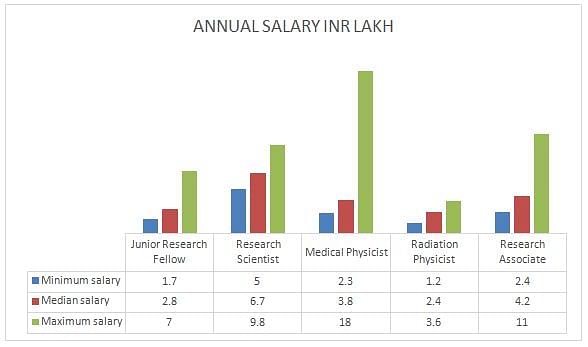M.Sc. Physics Admission Started
Session (2018-20)
Government University (UGC-DEC Approved)



Discription Of The Course--
Physics is a Science streem course and very interesting subject.

Advance Courses in M.Sc. Physics
Syllabus of M.Sc Physics Distance Education
Session (2018-20)
Government University (UGC-DEC Approved)
Discription Of The Course--
Physics is a Science streem course and very interesting subject.
M.Sc Physics Distance Education 2018-19
Information About M.Sc Physics Distance Education
| Offered By | VEPS India |
| Eligibility | Graduation |
| Admissions Procedure | Online/Offline |
| Fee Structure | 15850/- + per year |
| Duration | 2 year |
| More Info | 7289937205 9999864090 |
Courses Information: M.Sc Physics Distance Education is a postgraduate degree in Physics. Physics is a science that involves the study of matter and its motion through spacetime, together with connected ideas like energy and force. In addition, broadly speaking, It’s the overall analysis of nature, conducted so as to know however the universe behaves. The period of M.Sc Physics Distance Education is generally of two educational years however it varies from institute to institute. The Bangalore University, Karnataka is providing in 2 years. The minimum time to finish the course is additionally two years. The program is split into 2 semesters and it’s important one is being offered by several institutes in the country.
Physics lit. ‘knowledge of nature from nature is the natural science that involves the study of matter and its motion and behavior through space and time, along with related concepts such as energy and force. One of the most fundamental scientific disciplines, the main goal of physics is to understand how the universe behaves.You will apply your knowledge to areas such as developing advanced materials, electronic and optical devices, and equipment for a wide range of fields such as medicine, mining, astronomy and geophysics.
Duration: Usually Master of Science(Physics) can be completed in two years.
Eligibility: Master of Science(Physics) can be done by anybody who has passed their graduation with science stream from a recognized university and colleges.
Fees: We mentioned here only approximate Fees for Master of Science(Physics). It could be changed according to university rules.
Salary
There are many jobs available for a physicist. he/she will get after his/her degree completing M.Sc in Physics. Even in past few years demand for physicist have increased so much that salary trend for physics graduate looks very optimistic
University :
- MKU University
- NIMS University
- Periyar University
- MS University
- Allahabad Agricultural University
- Himalayan University
- Integral University
- Kalinga University
Advantages of M.Sc Physics.
- In agricultural research amenities also have scopes with agricultural physics and soil physics as specialization.
- Teaching positions in secondary and higher secondary schools, poly techniques, degree colleges, engineering colleges and state & central universities.
- Moreover, the universal position of physics tutor is always there. Some reputed coaching institutes offer fabulous pay packages.
Documents: Candidates are also required to send or mail the scanned document copies of their early academics which includes
- Graduation Mark Sheet
- 12th Mark Sheet and Certificate
- 10th Mark Sheet and Certificate
- Habitation Proof
- Photo Identity Proof
A Career in M.Sc Physics Distance Education:
|
|
M.Sc. Physics Job Types
|
|
Advance Courses in M.Sc. Physics
- M.Phil. (Physics)
- Ph.D. (Physics)
For More
Ques. How can I take admission?
Ans. Students can apply for taking admission by online procedure or offline procedure( i.e. completing a form with your own handwriting). If you face any type of difficulty, you can also talk to our expert. and also can mail all documents to mail id and can pay fees by online process.
Ques. How can I pay fees in its?
Ans. Students can pay their fees by online payment procedure, likewise Pay pal, NEFT, Visa Card, Cash etc.
Ques. If my counselor does not give me response than what I do a
Ans. If the counselor is unable to take your call then students can mail us on this E-mail id vepsindiadu@gmail.com. The student will get a response within 24 hours.
Ques. Is this course is approved for my job?
Ans. Yes, the Courses offered by our institute that is approved by UGC and DEC These courses are valid for Govt jobs and for also any govt examination.
Ques. What is Fees-Structure of M.Sc Physics?
Ans. 15850/- + Per year.
Master of Science
Master of Science
Syllabus of M.Sc Physics Distance Education
I Year II Year
| CODE | PAPER |
| IMTS101 | Digital Electronics & Microprocessors |
| IMTS102 | Electromagnetic Theory & Modern Optics |
| IMTS103 | Mathematical Physics and Numerical Methods |
| IMTS104 | Molecular Physics & Spectroscopy |
| IMTS105 | Practical & Project Work |
| IMTS106 | Internship & Training |
| CODE | PAPER |
| IMTS201 | Atoms, Molecules & Solids |
| IMTS202 | Electrodynamics |
| IMTS203 | QuaŶtuŵ MeĐhaŶiĐs– I |
| IMTS204 | Classical Mechanics |
| IMTS205 | Practical & Project Work |
| IMTS206 | Internship & Training |
For Admission And Fee Related Querries Please Call 7289937205 , 9999864090 , 9818584502(WhatsApp) ,
Please Visit Our WebSite vepsindia in Google (www.vepsindia.org)

